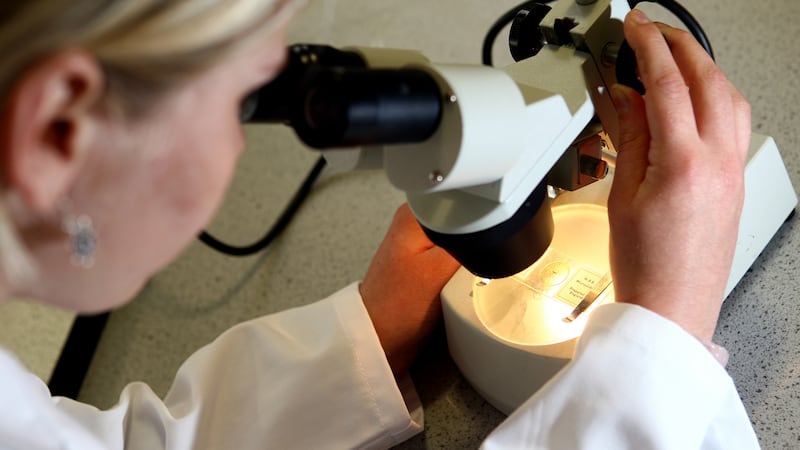Recent debates on Brexit, often boring and repetitive, have occupied the minds of many people, some intellectually gifted, others with at least a basic knowledge of the world and economics but far too many engaging in old-fashioned partitionist politics that fly in the face of a progressive and modern world free from borders that prevent the movement of goods, services, and above all actively promote stability and peace.
Their arguments certainly do not reflect the vision of John Hume who saw the bigger picture of how the European Union serves as an important catalyst for breaking down borders. Few if any of the contributors mention that Brexit will not just affect Ireland’s relations with Britain or indeed the future of the EU but other regions lying beyond the EU borders that feel threatened by this crazy decision by Britain to turn her back on her European allies and their endeavours to achieve a better world in which we live.
My heart goes out to the people in Georgia, Armenia, the Ukraine as well as the Balkan countries where there is bewilderment that any member of the EU would be contemplating such a move when the threat from Putin and Russia has never been more serious. It is indeed difficult to explain to someone living in say Tbilisi or Yerevan what exactly the motivation is behind Brexit and how it relates to world peace and the retention of a union of countries that has done so much to break down borders, encourage travel and share with other nations new opportunities to make this a better world for everyone.
Many very courageous people who know all about oppression and have won their freedom after much suffering are extremely nervous that the Russian tanks will roll in once again just as they have already done in the Crimea part of the Ukraine.
To date the Republic’s government have been passionate about the future of the EU and in debates reflect accurately the desire of the Irish people to remain so that it can continue to reach out even further to those countries that still live in fear of reoccupation.
My colleagues in the SDLP share that passion and concern for our friends in those countries that have been unsettled by the actions of Britain and, sadly her cronies here in the north who lack the vision or the foresight to see the consequences of what they are involved in.
We must see the bigger picture – this is not just about a hard border between Derry and Muff or Newry and Dundalk but a real threat to the stability of other nations who fear a domino effect following what is about to happen and Putin must be rubbing his hands in glee. Shame. Shame.
JOHN DALLAT MLA
SDLP, East Derry
Depth of the mystery of baptism is fundamental to our lives
Most people on this island have been baptised. This happens mostly at infancy when others take our vows for us. At confirmation, we revisit these vows – but, again, we are quite young to understand their importance and impact.
At baptism, we become members of Christ’s Mystical Body, the Church. This is painted very graphically by St Paul in 1 Cor. 12:12-31. In effect, we become Christ’s hands, feet, eyes etc. Christ calls Himself the vine, we the branches, and He personally identifies with the weakest in society [When I was hungry?]. At baptism a white robe is placed on the child/adult to symbolise ‘putting on Christ’. St Paul, in Galatians 2:20, again paints a powerful image when he says: “I live, now not I, but Christ living in me.” So, the depth of the mystery of baptism is fundamental for our lives. It sets us on a particular course and all choices should be rooted in and stem from this fundamental option – to live by, for, as and in Christ. That is our call – and our privilege – as Christians.
So, where does the issue of abortion leave the Christian? Some say that abortion is not a religious issue but simply a matter of state. But this is no ordinary issue. Abortion is a matter of life or death. It goes to the very core of our existence and, despite what some say, is above all a matter of conscience – informed conscience. As adult Christians, we are duty-bound – and privileged – to revisit the baptismal vows, to make them our own – or, indeed, reject them.
So, if in baptism, we become Christ’s hands, eyes, feet, etc, what part of
Christ in us would vote for His own death in another person – especially in those with whom He specifically identifies, namely the weak?
Can we leave Him at the polling door and just pick Him up on our way out?
Much is rightly made of Christ’s mercy and forgiveness but He had a few stern words of warning for us. In the second temptation (Mt: 4 1-11) He is tempted to make God prove his love for Him. The tempter cunningly quotes the bible – that God will send his angels ‘lest you strike your foot against a stone’.
Christ quickly retorts: “It is also written: ‘Do not put the Lord your God to the test.’ We shouldn’t take God’s love for granted. On a fundamental issue such as abortion, can we as Christians promote, choose or vote for anything other than life – in this case Christ Himself?
MALACHY DUFFIN
Randalstown, Co Antrim
Language rights in EU
Are there 8,250 people in the Republic who support language rights? Are there 54,750 such people in the UK? To do something positive about the issue consider signing, within the next week or so, the European Citizens’ Initiative at www.minority-safepack.eu/ which seeks EU legislation to protect language diversity.
CIARÁN Ó DUIBHÍN
Belfast BT11
Protect the unborn
WE SHOULD save the Republic’s Eighth Amendment as it is the best legislation in the Irish Constitution to be proud of. Without it there would be no protection for unborn babies. There are two separate human beings – mother and child. The child has its own identity and own blood group apart from its mother. This is a Human Rights issue especially when all human rights comes from right to life. If lost it would make a mockery of human rights. Science states life begins at the moment of conception.
JOAN O'HARE
Bessbrook, Co Down
Anti-unionist bias
The Irish News (March 6) ran an article which claims the DUP contacted leading Loyalists regarding an Irish language act. Even if they did what’s the problem? I’m sure Sinn Féin are in regular contact with leading republicans. Whether you like it or not leading loyalists are there as are leading republicans, so they are part of the equation. If it’s okay for Sinn Féin to consult republicans, then it should be the same for the DUP and leading loyalists. Once again The Irish News is showing its anti-unionist bias.
ALBERT COOKE
Belfast BT5
Sense of self- importance
Are the letters emailed from Robert Sullivan in Bantry, Co Cork from a fictitious parody account?
His comical value is fantastic.
What’s even funnier is his evident sense of self-importance and his innate and maniacal dislike of republicans.
He sounds like ‘wee Sammy in the Rangers Club’ writing under a nom de guerre after one too many sherries.
D ROBINSON
Belfast BT15







